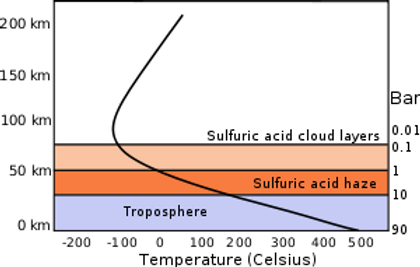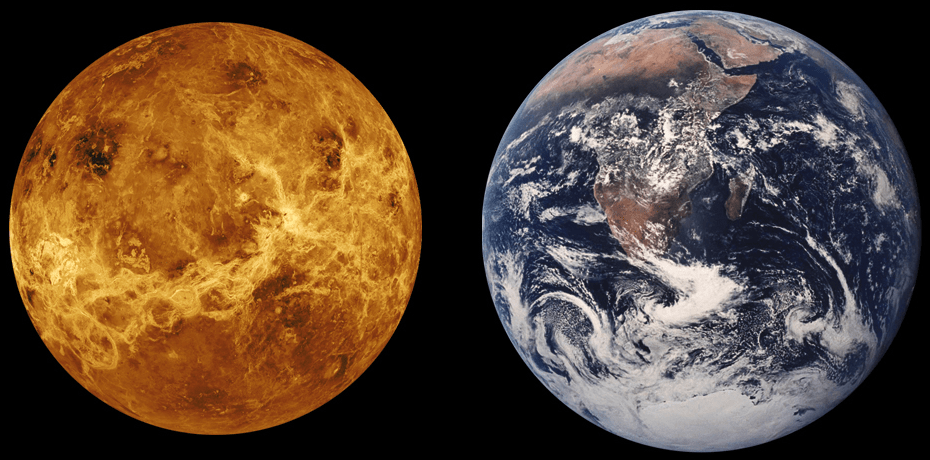Time for a New Life Focus
In late-2001, during a fateful relocation across the US, I made a life-changing decision: I wanted the next phase of my life to focus on space. When I was 11 years old, I dreamed of someday serving as the commander for the first permanent human colony on Mars. However, my life took me in other directions, so I felt it was time to get myself back on track.
Now, after almost 20 years of working through various segments of the space ecosystem, I find myself at a similar crossroads. This time, I am shifting my next 20-year focus to Venus. Specifically, I want to help establish a permanent human presence in the Venusian atmosphere.
Yes, floating cities!
Until a few years ago, I had not really thought much about Venus, other than knowing it was our “evil twin” (so similar across a number of characteristics and yet completely inhospitable to human life). However, I have spent quite a bit of time reading through the scientific research and speaking with experts in the field. I am now convinced that Venus must be seriously considered as a long-term option for human settlement and as a near-term source of valuable scientific data that could help us here on Earth.
Why Venus? (long-term)
Ever since my childhood dreams, I have continued to think extensively about how humans could live permanently away from Earth. Over the years, I have discussed these topics at length with my friends and colleagues, all of whom are much more knowledgeable than I am about engineering, science, medicine, and other relevant technical fields. No matter how many amazingly creative ideas have been proposed to establish a permanent human presence in orbit, on the Moon, or on Mars, I just could not see how we could get past two of the greatest obstacles: radiation and gravity (or, rather, lack of gravity), both of which could have fatal short- and long-term effects on human health.
There are certainly engineering solutions for the radiation exposure when humans get beyond the protection of Earth’s magnetic field, but I did not think anyone would want to live underground on the Moon or on Mars, at least not for extended periods of time that could span several generations. The lack of gravity is even more problematic, since there are currently no known engineering solutions to offset the low gravity on the Moon (16% of Earth’s) or Mars (38% of Earth’s), and the proposed engineering solutions (e.g., rotating stations) to offset the near-zero gravity felt by the free-falling objects in Earth’s orbit would have to be so large as to make them economically impossible. “Never say ‘never'”, but I just could not see humanity getting off Earth permanently during my lifetime.
Then I did some research on Venus.

According to currently available data, scientists believe that 50km above the Venusian surface lies a zone in its thick atmosphere that experiences gravity roughly the same as Earth’s and provides equivalent radiation protection (even though Venus is much closer to the Sun and has no magnetic field). Also, the air pressure is nearly the same as Earth’s and the temperature is a hot-but-relatively-manageable 30-75 C (86-167 F). The biggest challenge to human survival would be the clouds of sulfuric acid, but even this could be solved with technology available today.
Bottom line: it seems like current scientific thinking is that the Venusian atmosphere may be one of the only places in the solar system where we could find radiation protection and gravity similar enough to Earth’s that humans could potentially survive there on a long-term basis.
Why floating cities?
The Venusian atmosphere consists mostly of CO2, and it is much denser than Earth’s. This means that an enclosed capsule containing a normal mix of Earth air (roughly 80% nitrogen and 20% oxygen) would float quite nicely, making it unnecessary to use “lifting gasses” (like helium or hydrogen). Just to show that this is not something out of Star Wars, the image in the header above is from NASA’s HAVOC program (“High Altitude Venus Operational Concept“).
Why Venus? (near-term)
As excited as I got when I discovered that Venus might be a viable destination for long-term human presence, it turns out that there are also some very important reasons for us to focus on Venus in the near-term. Specifically, studying our sister planet in more detail may help us better understand what is going on with our own planet when it comes to the climate change and global warming that is being triggered by greenhouse gas emissions.

The science community seems to agree that there is an urgent imperative to learn more about how Venus works today and how it got there. Earlier this summer, NASA announced a pair of robotic missions (DAVINCI+ and VERITAS), both scheduled to launch in 2028-2030. A week later, the European Space Agency announced its own ambitious Venus mission (EnVision), scheduled to launch in 2031.
Clearly we need to spend more time and resources studying Venus in order to help save our own precious Earth.
Venus v Mars v Moon v …?
A short side note: just because I will be focusing on Venus, it does NOT mean that I believe it should be at the expense of Mars, the Moon, or any other effort to study, explore, and settle various locations in our solar system. I do not subscribe to a scarcity mindset, so I do not believe we have to choose only one instead of others. Instead, I subscribe to an abundance mindset and strongly believe that humanity should pursue ALL of these alternatives. I am 100% convinced that as a species we have the financial, human, scientific, and technological resources to establish a permanent human presence on Earth, in orbit, on the Moon, on Mars, in the Venusian atmosphere, AND anywhere else we choose.
Humans2Venus
OK, so … I decided to make a life/career shift to focus on Venus, but what exactly does that entail?
To be honest, I am not yet sure what form this new focus will take. However, as an initial stepping stone, I have decided to launch Humans2Venus, a global community dedicated to the long-term vision of establishing a permanent human presence in the Venusian atmosphere.
This is a diverse group of entrepreneurs, investors, technologists, scientists, marketers, educators, government officials, philanthropists, and social media influencers. We have some ambitious plans for the coming months, but in the meantime we are starting with a minimalist website that aggregates relevant content from across the Internet.
If You Want to Come Along …
Over the past 20 years, I have dedicated my life to helping others carve their own path toward their passion for space. Therefore, if you think you might have a passion for Venus, then please reach out and let’s see what we can do together!
Please know that this does NOT require you being an expert on Venus … or human off-world settlement … or even space. In fact, I have always said that some of the best insights are provided by “outsiders”, who bring a fresh perspective and energy to the cause. If we are to succeed in making humanity a true space-faring species, then it will take all of us, or at least a solid cross-section of humanity.
… and that is where I will be focused for the next 20-year chapter of my life. I am excited to see where it all leads!
